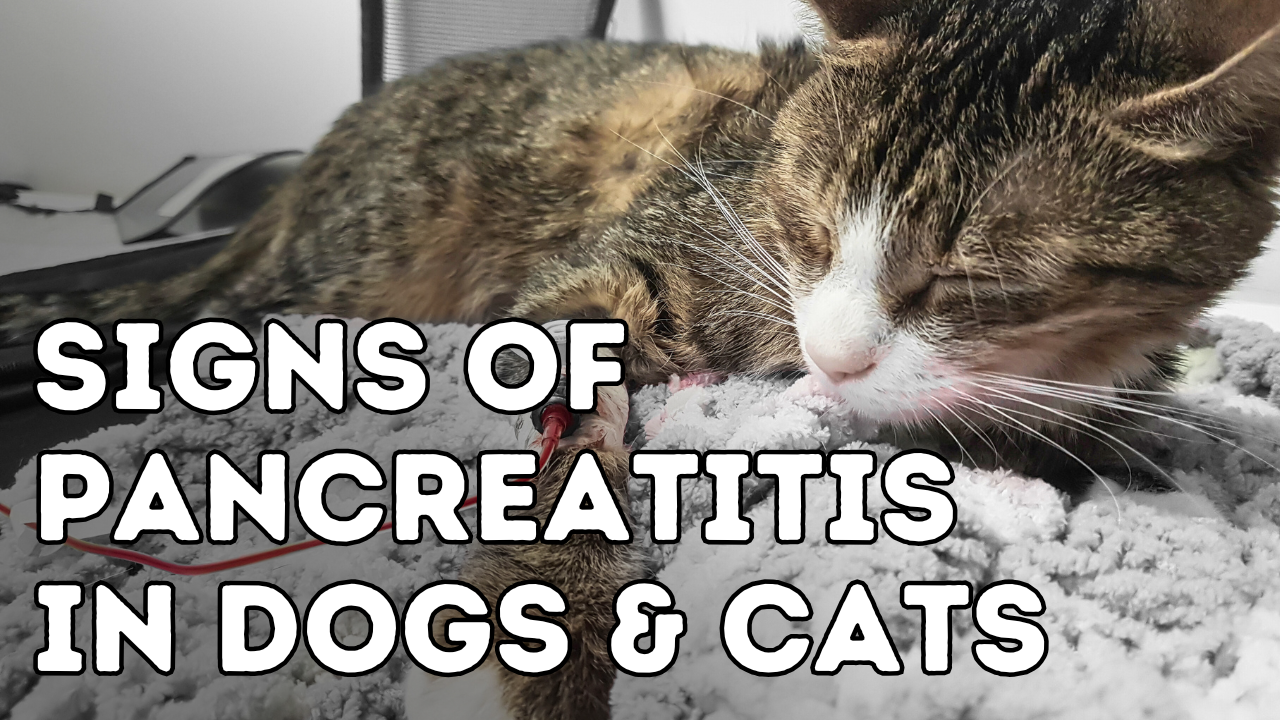Top Signs of Pancreatitis in Dogs and Cats You Shouldn’t Ignore


EPI: The Pancreas, Pancreas Problems, and Digestion—What is Going On?
As a veterinarian, I often encounter pets suffering from various digestive issues. A major culprit in many of these cases is the pancreas. The pancreas has two vital functions that are crucial for your pet’s overall health:
1. Producing Insulin
Insulin is the hormone that moves sugar from the bloodstream into cells, where it is used for energy.
2. Producing Digestive Hormones
The pancreas also produces digestive hormones, such as lipase (to break down fats), proteases (to break down proteins), and amylase (to break down starches). These hormones are essential for proper digestion and nutrient absorption.
Pancreatitis: When the Pancreas Becomes Inflamed
Pancreatitis occurs when the pancreas becomes inflamed, and this condition is fairly common in pets. It can affect any dog or cat, regardless of age, sex, or breed. Pancreatitis can be acute (sudden onset) or chronic (long-term inflammation).
Diabetes: The Link Between the Pancreas and Blood Sugar Regulation
When enough insulin-producing cells in the pancreas are damaged, dogs develop Type 1 diabetes. In contrast, cats typically develop Type 2 diabetes, which is often linked to diet and excessive carbohydrates. This excess of carbohydrates can cause cells to stop responding to insulin properly.
EPI: Exocrine Pancreatic Insufficiency
Exocrine Pancreatic Insufficiency (EPI) is a condition that occurs when the cells of the pancreas that produce digestive enzymes are no longer working properly. In this case, digestive enzymes like amylase, lipase, and protease aren’t being produced in sufficient quantities. As a result, food can’t be properly broken down or absorbed, leading to malnutrition and weight loss in affected pets.
Symptoms of EPI in Dogs
Without the necessary digestive enzymes, your dog won’t be able to properly digest food. This can lead to several common symptoms of EPI, including:
- Weight loss despite normal or increased food intake
- Ravenous appetite
- Coprophagia (eating feces)
- Pica (eating unusual objects)
- Soft stools or diarrhea that is pale, greasy, and/or especially smelly due to undigested food in the intestinal tract
- Excessive gas
- Flaky skin and a rough coat
While any breed can be affected by EPI, certain breeds are at a higher risk, including:
- German Shepherds
- Rough-Coated Collies
- Chow Chows
- Cavalier King Charles Spaniels
- Cairn Terriers
- Akitas
- West Highland White Terriers
- Cardigan Welsh Corgis
- Border Collies
- Australian Heelers
- Australian Shepherds
- Shetland Sheepdogs
Treatment for EPI: Digestive Enzyme Supplementation
The primary treatment for EPI in dogs involves supplementing with specific digestive enzymes, including amylase, lipase, and protease. Veterinary-specific enzyme brands, like Viokase, are commonly used. Probiotics are also often recommended to help support gut health.
Pancreatic Maldigestion: An Alternative Approach
There’s a growing belief among some veterinarians that many dogs—and even people—could benefit from routine digestive enzyme supplementation, even if they don’t have a diagnosed digestive disorder. In the wild, dogs consumed food that was rich in naturally occurring enzymes, which aided digestion. However, many commercial dry or canned dog foods today lack these enzymes, potentially contributing to gastrointestinal issues.
Dr. Jean Hofve DVM supports this notion in her 2013 paper on digestive enzymes, where she advocated for routine enzyme supplementation for all pets:
“Digestive enzymes can be used for pancreatic and GI issues, but are also beneficial for healthy patients eating heat-processed pet foods."
Chronic Pancreatitis and Digestive Enzyme Support
Chronic pancreatitis can cause permanent damage to the pancreas, leading to a reduction in enzyme production. When this happens, malabsorption occurs—food is not properly converted into usable energy by the digestive system. Digestive enzyme supplementation is often recommended for pets with chronic pancreatitis or recurrent gastrointestinal issues.
Digestive Enzymes for Managing Diabetes
Some veterinarians are also using digestive enzymes to help manage diabetes in pets. Since the lack of digestive enzymes can make it more difficult for a pet’s body to process and absorb carbohydrates, enzyme supplementation can improve digestion, leading to more stable blood sugar levels.
Healing Your Pet at Home
If your pet is suffering from digestive issues, it’s crucial to treat the root cause of the problem. Holistically lowering inflammation and providing essential fatty acids can be a great start. I recommend starting with a high-quality essential fatty acid supplement, like our Krill Oil, which is toxin-free and contains high levels of anti-inflammatory omega-3 fatty acids (EPA and DHA).
You can get your toxin-free, cost-effective anti-inflammatory EFA supplement for dogs and cats here:
Dr. Jones’ ULTIMATE Omega 3 Formula for Dogs and Cats
P.S. Treating the underlying cause and reducing inflammation holistically is always a better approach. Start with a high-quality essential fatty acid supplement, like our Krill Oil, which is toxin-free and more effective than many salmon oil supplements on the market.







Can I buy your digestive care in the UK also the krill oil. Thank you,
We do ship all of our supplements internationally, however some countries do not allow CBD products and certain pet health products. You will have to check with your country’s international customs policies before ordering.
For shipping costs for Dr. Jones’ supplements, you can find an estimate by adding a jar of the supplement to your cart, and once you are in your cart, scroll down below the cart and you’ll see “Estimate Shipping and Tax”. Just enter your basic shipping details (Country, etc) and click “Get a Quote” and you’ll see the available options.
Here’s a link to Dr. Jones’ products:
https://shop.veterinarysecrets.com/